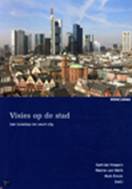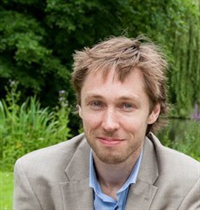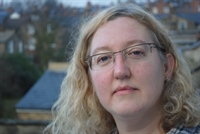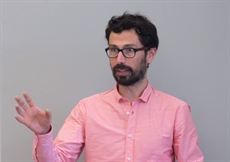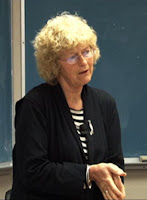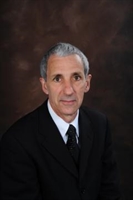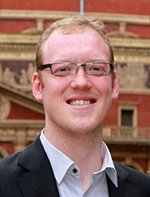Alexander von Humboldt Lectures
Ernste, H. (Huib)
Alexander von Humboldt Lectures 2015-2016:
Relational Approaches to Urban Transformations
The Department of Human Geography, Spatial Planning and Environmental Politics and the Department of Political Science at the Radboud University of Nijmegen cordially invite you to our Lecture and Seminar Series on the theme of ‘Relational Approaches to Urban Transformations’. Click here for a more detailed description of this year's theme.
The following Alexander von Humboldt Guests take part in our programme (clicking on a name will bring you to their personal homepage; clicking on 'programme' will bring you to the respective part of the programme) for further Details see: www.ru.nl/humboldt:
![]()
|
Thur. free entry |
Opening Lecture of the Human Geography Master Programme 2015-2016:
‘The Mediatisation of the City’
Abstract: A scene from Amsterdam’s Oosterpark: A gorgeous couple sits on the sunny terrace of Bar Bukowski. The couple looks each other, at the passersby, at the Oosterparkpark, but also at their mobile phones. They just uploaded a selfie on Instagram and tagged it with #goodlife. The picture was taken quickly but with care. They took several shots and tried different filters before circulating the image. Now they enjoy the sun, each other’s company, their drinks, and they check their phone every few minutes to see how many ‘likes’ their picture received and how their Instagram friends in other places are responding with #goodlife (and occasionally #badlife) pictures of their own. This scene illustrates how the city has become ubiquitously but unevenly mediatised. People constantly use the city as a background for making their media images and recreate the city in the process. What the city is and what it means is redefined through countless distributed acts of media production and consumption. Although the media now extends into the minutiae of everyday life, neither urban theory nor media theory have come very far in thinking through the mutual constitution of media and urban spaces. This presentation will develop tentative propositions on the mediatised city and present some preliminary findings from research I’m now conducting with John D. Boy, a postdoc at UvA’s sociology department. How does your relationship to the city and other people change when you upload pictures on Instagram? How do politicians change their policies as they increasingly anticipate and respond to media representations? How is the everyday segregation of different classes reflected or refracted through hashtags? How does the use of social media reproduce or disrupt dominant imageries of the city and society?
|
![]()
|
Mon. free entry |
Alexander von Humboldt Lecture:
‘Planetary Gentrification’
Abstract: This talk unpacks the Anglo-American hegemony in gentrification studies and in so doing questions the notion of a ‘global gentrification’. Ruth Glass, the British sociologist who coined the term ‘gentrification’, asked in other work: ‘What happens to the elaborate theories and speculations on the trends and implications of urbanization on the international scale when it has to be admitted that even the most elementary raw material for their verification exists?’ (1964:18). I consider the usefulness of Western theorizing on gentrification in non-Western cities, for, like Glass, I am conscious of the ‘persistence of the Western ideology of urbanism (or rather anti-urbanism)’ (1964: 27) which may not exist (or at least not in the same way) in non-Western contexts where, for example, issues of informality, state developmentalism (often intertwined with advanced neoliberalism), and even the concept of neighbourhood itself, take on radically different meanings. Building upon recent urban studies scholarship that has revisited the concept of the urban and the process of urbanisation at multiple scales (see Merrifield 2013; Brenner and Schmid 2012, 2014; Keil 2013), I advance the view that gentrification has unfolded at a planetary scale. This foray into ‘planetary gentrification’ advances postcolonial geographies along some of the pathways that Sidaway et al (2014) suggest, for in this paper I: (i) narrate planetary gentrifications and the configurations between their paths, focusing on the ascendancy of the secondary circuit of real estate (Harvey 1978; Lefebvre 2003) (offering a global perspective that considers colonialisms, analytical and everyday comparativisms, globalization, and also the globalised effects of financial capitalism), (ii) acknowledge other (post)colonialisms (old and new), (iii) demonstrate planetary indigeneity (organic gentrifications that are not copies of those in the West), and (iv) problematise translations (West to East, North to South and vice versa).
|
|
Tues. free entry, bring your own lunch |
Food for Thought Brown Bag Lunch meeting with Prof. Loretta Lees
Special guest: Dr. Wouter van Gent (University of Amsterdam) Moderator: Dr. Brian Doucet (Erasmus University, Rotterdam)
|
|
Wed. free entry |
Seminar with
Prof. Loretta Lees · Simone Pekelsma (Radboud University): ‘Gated life in Istanbul: exploring new relations of urban (dis)connection’ · Clara Rivas Alonso (Leicester Universty)
|
![]()
|
Mon. free entry |
Alexander von Humboldt Lecture:
‘Inhuman urbanity. Reflections on post-tsunami reconstruction in Chile’
Abstract: Do tsunamis, hurricanes, droughts, and other inhuman earthly forces that pose existential threats to human life define the ultimate ontological limit for the assembling or the reassembling of urban social? Do they hint towards an in-composable magnitude of earthly activity “for which we are not responsible” (Clark 2011: 66)? Looking at a post-tsunami reconstruction process in the city of Constitución, Chile, and the key role attributed to trees for future interactions with tsunamis, in this talk I would like to explore urbanistic attempts at composing worlds of cohabitation with such overwhelming forces. The concept of inhuman urbanity, I shall suggest, is helpful to grasping three aspects of these attempts. Firstly, it stresses the fact that cities are shaped by biophysical relations surpassing the agency capacities of humans. The various controversies about requirements and capacities of different tree species that arose during the course of these projects make apparent this more-than-human understanding of city life. Secondly, and more precisely, inhuman urbanity helps to describe the expected outcome of these urbanistic interventions. The anti-tsunami park of Constitución, for example, does not attempt at containing or re-directioning tsunami waves, but to soften their effects by transforming a rapid destructive wave into a slow flooding. The aim seems to be creating geographical conditions for inhuman forces to behave with certain urbanity when entering the city, that is, with suavity, courtesy and a certain refinement of their inhuman manners. Thirdly, inhuman urbanity doesn’t just involve a hitherto undiscovered region of the social. At least among the city designers under study, inhuman urbanity is taken to define the most fundamental condition of the urban social, capable of hardening or dismantling social injustices and conflicts. Inhuman urbanity is valued here as a shortcut for enabling human urbanity.
|
|
Tues. free entry, bring your own lunch |
Food for Thought Brown Bag Lunch meeting with Prof. Ignacio Farias
Special guest: Prof. Gert Spaargaren (University of Wageningen) (to be confirmed) Moderator: Prof. Pieter Leroy (Radboud University, Nijmegen) (to be confirmed)
|
|
Wed. free entry |
Seminar with
Prof. Ignacio Farias · dr. Henk-Jan Kooij (Radboud University) · n.n. (...)
|
![]()
|
Mon. free entry |
Alexander von Humboldt Lecture:
‘Cities and Ethnicities: Embodiment, encounters and material mediations’
Abstract: The lecture will follow two lines. Empirically it will draw on two recent research projects that I have been engaged in with colleagues from Roskilde University – ‘The Stranger, the city and the nation’ and ‘Paradoxical Spaces: Encountering the Other in public space’. Both projects have focused on cross-cultural urban encounters pursuing understandings of urban experiences and practices performed in the interspace of a metropolitan paradox oscillating between ‘cosmopolitan hope’ believing in hybrid cultures, bursting with creative potential, and ‘postcolonial melancholia’ emphasizing cultural racism and stigmatisation of ‘foreigners’. Different cases from the projects will be exploited in the development of an understanding of urban life. Theoretically, the paper will employ a practice theory or what I would call a ‘critical phenomenology’ – a genetic, asubjective phenomenology that situates practical, embodied consciousness in an interworld where meaning and materiality are inseparable. It is a theoretical approach that besides employing social practice theories and re-readings of existential phenomenology (Merleau-Ponty) draws on feminist and postcolonial thinking. It is a claim that such an approach can lead to a ‘new humanism’ after posthumanism that can give room for ethics of responsibility and human agential capacities. All put in play in order to achieve a non-deterministic, relational understanding of urban life.
|
|
Tues. free entry, bring your own lunch |
Food for Thought Brown Bag Lunch meeting with Prof. Kirsten Simonsen
Special guest: Dr. Reinout Kleinhans (Delft University of Technology) Moderator: Prof. Gert-Jan Hospers (Radboud University, Nijmegen) (to be confirmed)
|
|
Wed. free entry |
Seminar with
Prof. Kirsten Simonsen · Roos Pijpers (Radboud University) (to be confirmed) · Prof. Huib Ernste (Radboud University) 'The Practice of the Practice Turn'
|
![]()
|
Mon. free entry |
Alexander von Humboldt Lecture: ‘Buildings, Cities, and Material Semiotics’ Abstract: My lecture will explore the contribution that material semiotics can make to how we think about buildings and cities. Material semiotics draws on a number of literatures – science and technology studies, urban political ecology, post-humanism, and actor-network theory – to posit a world that exists as a consequence of the myriad ways in which humans, nature, technology and ideas associate. It is deeply committed to relationality and one of its most key concepts is the assemblage or network. Material semiotics aims to break down the divide between culture and nature and to distribute agency across humans and non-humans. In addition, it turns our attention away from a politics enacted solely by humans to a politics of things in which non-humans (e.g., national historic sites) are equally influential. Two examples will illustrate the usefulness of these ideas: one concerned with how a single building establishes itself in the social landscape and the other concerned with what happens as a city grows and declines.
|
|
Tues. free entry, bring your own lunch |
Food for Thought Brown Bag Lunch meeting with Prof. Robert Beauregard
Special guest: dr. Ward Rauws (University of Groningen) (to be confirmed) Moderator: Prof. Taco Brandsen (Radboud University, Nijmegen)
|
|
Wed. free entry |
Seminar with
Prof. Robert Beauregard · Marlies Meijer (Radboud University) (to be confirmed) · Dr. Martijn Duineveld (Wageningen University)
|
![]()
|
Mon. free entry |
Alexander von Humboldt Lecture:
‘The new global urbanism: Fragments, assemblages, and political formations’
Abstract: With the majority of humans on the planet now residing in towns and cities, it is commonplace for commentators to describe the world as ‘urban’; to herald an ‘urban revolution’ and proclaim cities as the triumphal spaces that ‘make us human’ (Brugmann, 2009; Glaeser, 2011). Even in places that are not visibly urban, urbanism – as a set of political, economic, cultural and symbolic forces – is increasingly identified to be fundamental in the organisation of geography and everyday life. However, urban studies is at an impasse (Peck, 2015), caught between a promise of understanding urbanism-gone-global and a failure to deliver on that promise, and beset with profound differences around the theoretical and methodological stakes of urban research. In this lecture I examine the problematic of global urbanism by asking two questions. First, how might global urbanism be conceptualised? Here, I offer a reading of global urbanism through the concepts of ‘fragment’ and ‘assemblage', and argue for the value of understanding global urbanism as a set of lived intensive heterogeneities. Second, how might we understand the urban political in conditions of global urbanism? Here, identify key tactics that not only politicise the increasing inequalities of global urbanism, but which stretch and reconfigure the nature of the urban political. I illustrate the lecture by drawing on research on Kampala, Cape Town and Mumbai.
|
|
Tues. free entry, bring your own lunch |
Food for Thought Brown Bag Lunch meeting with Prof. Colin McFarlane
Special guest: Prof. Luuk Boelens (Gent University) Moderator: Prof. Peter Ache (Radboud University, Nijmegen) (to be confirmed)
|
|
Wed. free entry |
Seminar with
Prof. Colin McFarlane
· Bas Hendrikx (Radboud University) · n.n. (Radboud University) (to be confirmed)
|
Prof. Huib Ernste
Chair
Human Geography
Radboud University Nijmegen
Thomas van Aquinostraat 3 (Room 3.1.46)
P.O.Box 9108
NL-6500 HK Nijmegen
Tel: +31-(0)24-361 19 25
Fax: +31-(0)24-361 18 41
Home: Tel: +31-(0)24-360 92 31
www.ru.nl/gpm (Dutch)
www.ru.nl/gpe (English)
Member of the Academy for Spatial Research and Planning (ARL)
Member of the Editorial Board of Tijdschrift voor Sociale en Economische Geografie (TESG)
Newest Book: Visies op de Stad: Van tuindorp tot smart city
(‘Visions on the City: From Garden Village to Smart City’). Boom-Lemma, Amsterdam
